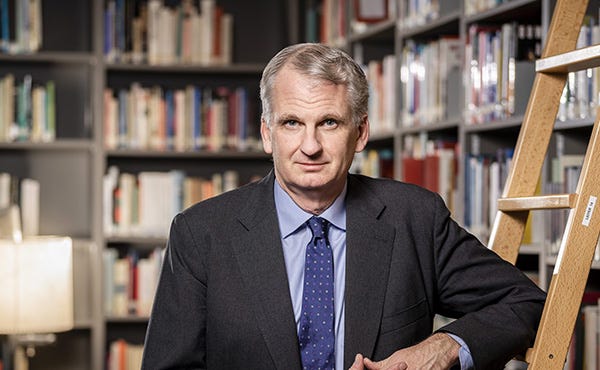The fraught symbiosis between liberalism and nationalism is one of Compact’s central intellectual and journalistic interests. One of my first essays for the magazine, published in May 2022, contended that notwithstanding the antagonism that characterized liberalism’s relationship with nationalism in the postwar period, the two ideologies “used to be yoked together” in the 19th century, “and they appear poised to patch up the marriage.”
The Ukraine war had only recently erupted then, yet already there were signs of a curious rapprochement. Atlanticist liberals, left-of-center outlets, and sundry Brussels types seemed to have been cured of their allergy to nationalist fervor. A Ukrainian flag in their Twitter bios became de riguer. Ukraine’s Azov Battalion, once denounced as a white-nationalist organization in the pages of The New York Times, was now coolly described as just another “unit” of the country’s National Guard. Carl Bildt, a former prime minister and foreign minister of Sweden, circulated an image depicting Ukrainians knights fighting off literal Russian orcs.
But this month brought an even more uncanny expression of this tendency in the form of a lecture by Timothy Snyder, the great American scholar of Europe’s bloody 20th century, who in recent years has emerged as a rather crude #Resistance liberal and cheerleader for Ukrainian maximalism. Speaking at Boston College, Snyder waxed romantic about Ukraine’s central and supposedly neglected role in the mythogenesis of Europe: the Europe of the Ring Cycle and Tolkien and Amazons and Vikings and Scythians and “the Indo-European heartland.”





